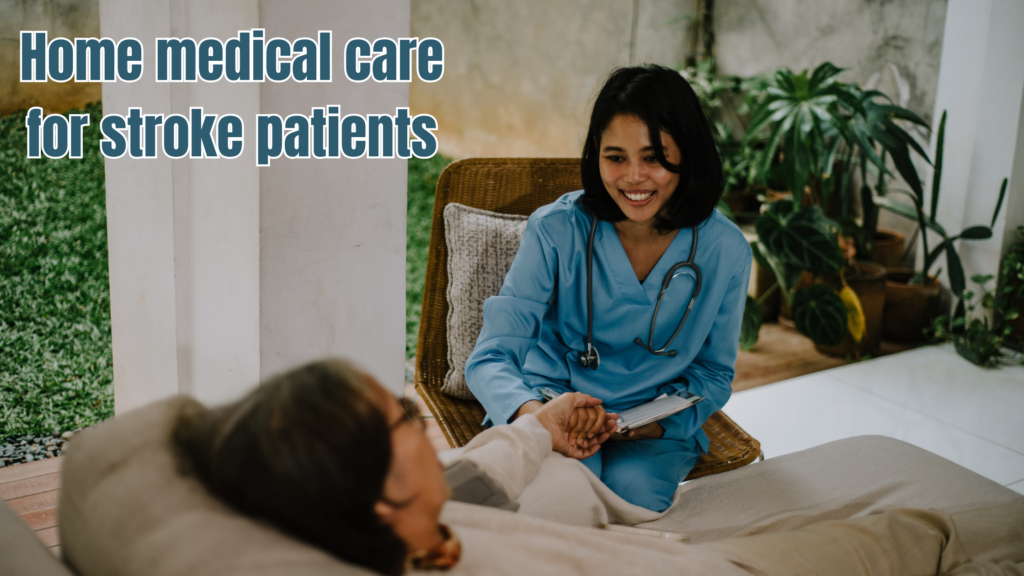WHAT IS HOME MEDICAL CARE FOR STROKE PATIENTS?
Home medical care for stroke patients is a comprehensive support system delivered at home, helping patients recover after a stroke (brain attack). It includes medical supervision, nursing, physiotherapy, speech therapy, and emotional support, tailored to each patient’s recovery stage.
🎯 OBJECTIVE
- To provide safe, personalized medical care in the comfort of home.
- To help restore mobility, speech, and daily function.
- To prevent complications like bedsores, infections, or repeat strokes.
- To improve the patient’s independence and quality of life.
✨ FEATURES
- Nursing Care at Home
- Vital monitoring (BP, sugar, pulse, oxygen).
- Bedsore prevention and wound dressing.
- Catheter care, feeding tube care (if needed).
- Medication administration.
- Physiotherapy Services
- Limb movement exercises.
- Strength training and balance restoration.
- Gait training (walking support).
- Use of exercise tools (e.g., resistance bands, walkers).
- Speech Therapy
- Helps regain speech, swallowing, and communication skills.
- Exercises for aphasia, dysarthria, and slurred speech.
- Occupational Therapy
- Training in basic daily tasks (eating, dressing, toileting).
- Hand-eye coordination and muscle control training.
- Doctor Home Visit (if required)
- Periodic check-ups to adjust treatment and monitor recovery.
- Nutrition and Feeding Support
- Stroke-specific diet planning.
- Tube feeding management (for severe cases).
- Emotional and Mental Health Support
- Counseling for anxiety, depression, frustration.
- Family education and caregiver training.
🌿 NATURE
- Multidisciplinary: Involves coordination between nurses, physiotherapists, doctors, and family.
- Progressive: Adjusted based on the stage and type of stroke (ischemic/hemorrhagic).
- Home-based and Personalized: Avoids travel burden for immobile patients.
- Holistic: Focuses on physical, mental, and emotional well-being.
✅ ADVANTAGES
- Enables faster recovery in a familiar environment.
- Reduces hospital dependency and costs.
- Provides one-on-one attention and care.
- Prevents risks like falls, infections, and complications.
- Supports both patient and family emotionally.
- Allows long-term follow-up care, even in rural settings.

